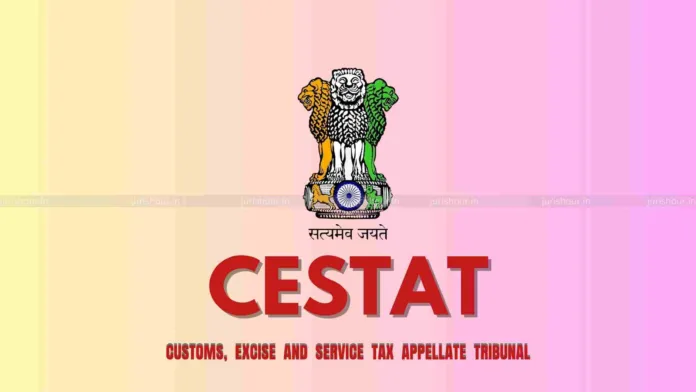The Customs, Excise & Service Tax Appellate Tribunal (CESTAT), Ahmedabad Bench, has held that refund of Countervailing Duty (CVD) and Special Additional Duty (SAD), paid after the introduction of GST due to non-fulfilment of export obligations, is admissible under Section 142(3) of the CGST Act, 2017.
The bench of Dr. Ajaya Krishna Vishvesha (Judicial Member) has observed that the payments were made voluntarily following a DGFT deficiency letter and not through recovery or adjudication proceedings. No case of fraud, suppression, or misstatement was established against the company. Section 142(3) of the CGST Act expressly allows refund claims of CENVAT credit and duties paid under the old regime, even after the GST transition, provided such claims are otherwise admissible.
The appellant/assessee, Rashtriya Metal Industries, a manufacturer of brass strips and related products, had imported Zinc Ingots duty-free under the Advance Authorisation scheme between January 2012 and January 2014. However, it failed to fully meet the prescribed export obligations.
Following a deficiency letter from the Directorate General of Foreign Trade (DGFT) in May 2019, the company paid Rs. 8,89,795 (CVD & SAD)—well after the implementation of GST on July 1, 2017. Since GST had replaced the earlier excise laws, the company could not avail CENVAT credit on these payments and instead filed a refund claim in August 2019 under Section 142(3) of the CGST Act.
The claim was rejected by both the Assistant Commissioner (Order-in-Original dated December 5, 2019) and later by the Commissioner (Appeals) on February 28, 2020, who ruled that the company was ineligible as the payments were made post-GST and not covered under existing provisions.
The assessee argued that the issue was no longer res integra, citing several High Court and CESTAT decisions—such as Epigral Limited v. Union of India (2025) and Thermax Limited v. Union of India (2019)—which upheld refund claims under similar circumstances.
The department contended that the refund was barred under Rule 9(1)(b) of the CENVAT Credit Rules, 2004, on grounds of suppression and belated payment.
The tribunal drew parallels with prior rulings, including Granules India Ltd. (Telangana High Court, 2024) and Aculife Healthcare Pvt. Ltd. (CESTAT Ahmedabad, 2024), to reinforce that such refunds must be granted in cash.
Setting aside the Commissioner (Appeals)’s order, the tribunal allowed the appeal and directed the adjudicating authority to process the refund claim afresh in line with judicial precedents. Importantly, it ordered that the refund be paid in cash within 12 weeks, citing the Gujarat High Court’s ruling in Thermax Limited.
Case Details
Case Title: Rashtriya Metal Industries Limited Versus Commissioner of CGST & Central Excise, Surat
Case No.: Excise Appeal No. 10388 Of 2020-Sm
Date: 28.08.2025
Counsel For Appellant: Vineet Nagla, Advocate
Counsel For Respondent: Anand Kumar, Superintendent (AR)

